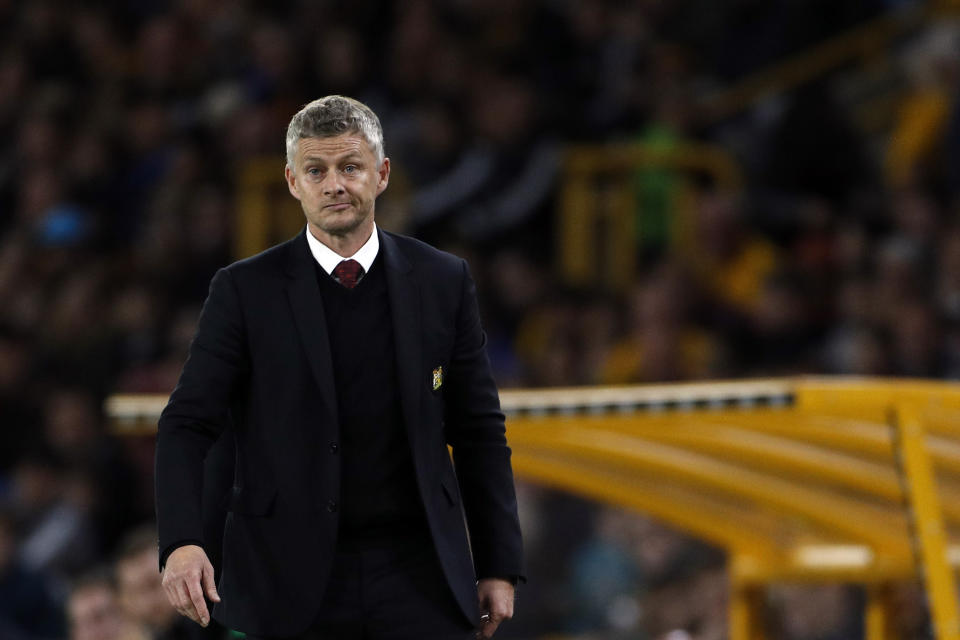Why do these big-club managers still have jobs? Either giants are wising up, or there are simply no alternatives
Manchester United, generators of record revenues and spenders of almost unlimited transfer budgets, presently sit two points above the Premier League relegation zone in a disheveling 12th place. Two wins, three losses, three ties. It’s the club’s worst start in 30 years. The Red Devils have scored just nine times in eight league games. In the Europa League, because United is in the Europa League again, the performance has been equally meek: a 1-0 over Astana from Kazakhstan and a 0-0 tie with AZ Alkmaar.
After a run of scintillating form upon taking over from the fired Jose Mourinho 10 months ago, Ole Gunnar Solskjaer now manages the worst incarnation of Manchester United in a generation – winning just five times in the last 23 games and no away matches at all since March. Yet it doesn’t appear that his sacking is imminent. The club’s American owners, interested in the club only as an asset to be drained of its money, have signed off on a long rebuilding project.
Chances are even Sunday’s 1-0 loss to a fairly abject Newcastle United won’t get the Norwegian a whole lot closer to being shoved out the backdoor, such is United’s reluctance to appoint a sixth manager since Sir Alex Ferguson’s retirement in 2013.
Curiously, similar scenarios are playing out at major clubs all over Europe.

Niko Kovac has never convinced anybody at Bayern Munich of his managerial nous. Sure, he won the German double last year. But its only real competitor, Borussia Dortmund, imploded down the stretch. Besides, it was the Bavarians’ seventh Bundesliga title in a row, so it was kind of expected of him. And after a relatively wobbly start to this season, punctuated by a first loss against Hoffenheim at home on Saturday, the murmurs got a little louder again.
Meantime, in Madrid, it seems Zinedine Zidane, winner of three Champions League titles in his first two and a half years in charge, before returning in March after both of his successors flamed in short order, seems but a few losses away from his own dismissal. Never mind that Real Madrid leads La Liga, without losing a single game. It’s just that the European juggernauts were humbled 3-0 by a Paris Saint-Germain team that was without Neymar and Kylian Mbappe and then eked out a 2-2 tie with Club Brugge in its next Champions League group stage game.
At arch-rival FC Barcelona, Ernesto Valverde may have won La Liga in both of his seasons at the helm. But two losses in their first five games, and a single Champions League victory owed entirely to a few moments of Luis Suarez brilliance, have posed difficult questions about his future. Not even Lionel Messi’s long absence with various injury issues is accepted as a fully exculpating factor, even though the team relies more heavily on him now than ever before. It’s all sort of strange, really, as Barca has creamed its opponents in some games, yet looked shaky enough in others for Valverde to become something like endangered.
AC Milan remains a dumpster fire, in spite of the enormous cost at which a collective of top-tier talents was amassed. The one-time European superpower had a new manager in Marco Giampaolo, a peripatetic Swiss who arrived from Sampdoria. He had four losses to three wins and an 11th place in Serie A to show for his efforts. And even though Milan came from behind to beat Genoa 2-1 away on Saturday – in a game with four red cards – Giampaolo was fired on Tuesday, still giving him more time than most failing Milan managers have gotten.
And Giampaolo has been the exception.

Somehow, all of these managers have hung on, in spite of their perilous positions. The number of managers at major clubs who appear to be in trouble is unusually high – especially at this early stage of the season. There’s even talk that Mauricio Pochettino is in hot water just months after Tottenham’s miracle run to the Champions League final, after the clearly dispirited Spurs’ disastrous start to the league, lowlighted by Saturday’s 3-0 loss to Brighton and a stunning 7-2 dismantling at the hands of Bayern Munich at home last Tuesday.
Yet their clubs seem reluctant to make a change, perhaps more so than you’d expect even at this early juncture in the new campaign.
One factor might simply be the lack of good alternatives out there. There aren’t very many established names available on the managerial market, and leaving one team for another midseason isn’t done much anymore. Mostly, the unemployed managers are veteran retreads. There’s Jose Mourinho, of course, lurking in every conversation about a potential vacancy, but he’s proven a liability whose methods might be outdated and only stand a chance when backed with an enormous transfer budget. The other options are possibly worse.
Or perhaps the quick trigger on managers is going out of fashion. Maybe teams have finally come to value continuity and stability over turmoil and renewal for its own sake. It’s plain to see, after all, that the most consistently strong teams in Europe over the last half-decade have given their managers room to fail before they succeed, and to fail again before finding yet more success.
Perhaps the big soccer clubs are wising up. Or maybe we’ll see a half dozen managerial casualties in the coming weeks.
Leander Schaerlaeckens is a Yahoo Sports soccer columnist and a sports communication lecturer at Marist College. Follow him on Twitter @LeanderAlphabet.
More from Yahoo Sports:

 Yahoo Lifestyle
Yahoo Lifestyle 
